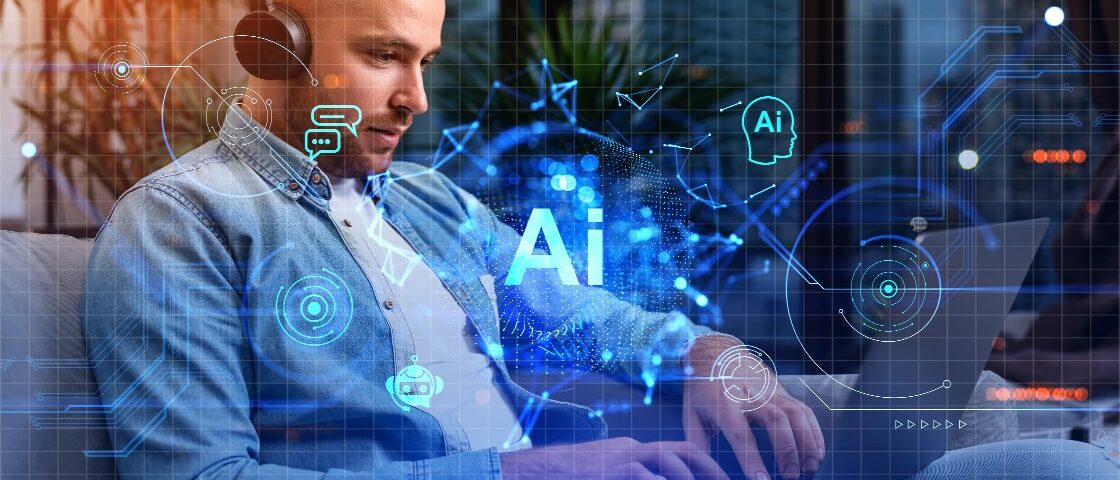Generative AI (GenAI) is revolutionizing the way we build, customize, and deploy applications. By automating repetitive tasks, generating code, and providing intelligent suggestions, GenAI is significantly accelerating the development process while ensuring security and quality. In this blog post, we’ll explore how GenAI is transforming app development and delve into the key benefits and challenges associated with its adoption.
Understanding Generative AI
Generative AI is a type of artificial intelligence that can create new content, such as text, images, or code, based on existing data. It learns from massive datasets and uses that knowledge to generate original outputs. By leveraging advanced algorithms and neural networks, GenAI can automate routine tasks that were previously time-consuming and error-prone.

Key Benefits of Using GenAI for App Development
Accelerated Development:
Code Generation: GenAI can generate code snippets or entire functions based on natural language prompts or code examples. This significantly reduces development time and effort.
Automated Testing: It can help automate testing processes by generating test cases and identifying potential vulnerabilities.
Rapid Prototyping: GenAI can quickly create prototypes of applications, allowing for early feedback and iterations.
Enhanced Customization:
Personalized Recommendations: GenAI can analyze user data and preferences to provide personalized recommendations and experiences within applications.
Dynamic Content Generation: It can generate dynamic content, such as product descriptions or marketing copy, based on specific criteria.
Improved Security:
Vulnerability Detection: GenAI can be used to identify potential security vulnerabilities in code and applications.
Threat Detection: It can analyze network traffic and user behavior to detect and prevent cyberattacks.
Enhanced User Experience:
Natural Language Interfaces: GenAI can enable natural language interfaces, making it easier for users to interact with applications.
Intelligent Chatbots: GenAI-powered chatbots can provide personalized customer support and answer questions.
Challenges and Considerations
Data Quality and Bias: The quality and diversity of the data used to train GenAI models are crucial. Biased data can lead to biased outputs and unfair outcomes.
Ethical Implications: The use of GenAI raises ethical concerns, such as the potential for misuse and the impact on jobs.
Technical Challenges: Implementing GenAI in app development requires specialized skills and resources, including access to powerful hardware and software.
Best Practices for Adopting GenAI
Start Small: Begin by experimenting with GenAI in specific areas of your app development process.
Choose the Right Tools: Select GenAI tools that are well-suited to your specific needs and team’s expertise.
Prioritize Security: Implement security measures to protect your data and applications from potential threats.
Continuously Learn and Adapt: Stay updated on the latest advancements in GenAI and adapt your approach as needed.
Real-World Examples of GenAI in App Development
Code Generation: GitHub Copilot uses GenAI to suggest code completions and entire functions.
Personalized Recommendations: Netflix and Spotify use GenAI to recommend movies, TV shows, and music based on user preferences.
Customer Service: Many companies use GenAI-powered chatbots to provide 24/7 customer support.
The Impact of GenAI on App Development
Beyond the core benefits outlined earlier, GenAI is also reshaping the entire landscape of app development. Here are some additional areas where its influence is significant:

Low-Code and No-Code Development: GenAI is accelerating the rise of low-code and no-code platforms. By generating code snippets or entire applications based on natural language prompts or visual interfaces, GenAI makes it easier for non-technical users to create functional software.
Design and User Experience: It may assist in the design process by generating UI elements, layouts, and even entire user flows. This can lead to more visually appealing and intuitive applications.
Data-Driven Decision Making: It can analyze vast amounts of data to identify trends, patterns, and insights. This information can be used to make informed decisions about app features, marketing strategies, and user experience improvements.
Continuous Integration and Continuous Delivery (CI/CD): GenAI can automate various aspects of the CI/CD pipeline, such as code reviews, testing, and deployment. This can help organizations deliver software faster and with higher quality.
Case Studies: Real-World Applications of GenAI
To illustrate the practical applications of GenAI in app development, let’s examine a few case studies:
Personalized E-commerce: Online retailers are using GenAI to create personalized product recommendations, targeted marketing campaigns, and even customized product designs based on individual customer preferences.
Healthcare Diagnostics: GenAI is being used to analyze medical images, such as X-rays and MRIs, to assist in diagnosing diseases and identifying abnormalities.
Financial Services: Banks and insurance companies are leveraging GenAI to detect fraud, assess risk, and provide personalized financial advice.
Addressing Ethical Concerns and Bias
As GenAI becomes more prevalent in app development, it is essential to address potential ethical concerns and biases. These include:
Bias in Training Data: If the data used to train GenAI models is biased, the models may produce biased outputs. This can lead to discriminatory or unfair outcomes.
Privacy and Data Security: GenAI often relies on large datasets, raising concerns about data privacy and security. It is crucial to implement robust measures to protect user data.
Job Displacement: The AI and automation enabled by GenAI may lead to job displacement in certain areas of app development. However, it is also creating new opportunities and skills requirements.
The Future of GenAI in App Development
As GenAI technology continues to advance, we can expect to see even more innovative and transformative applications in the field of app development. Some potential future trends include:
AI-Driven App Development: GenAI may eventually be able to develop entire applications autonomously, with minimal human intervention.
Hyper-Personalization: GenAI can enable hyper-personalized experiences, tailoring apps to the unique needs and preferences of individual users.
Augmented Reality and Virtual Reality: GenAI can be used to create more immersive and interactive AR/VR experiences.
By understanding the potential benefits, challenges, and ethical considerations associated with GenAI, developers can harness its power to create innovative, efficient, and secure applications that meet the evolving needs of users.
Conclusion
Generative AI is a powerful tool that can significantly accelerate app development and enhance the user experience. By understanding the benefits, challenges, and best practices, developers can effectively leverage GenAI to build innovative and secure applications. As GenAI continues to evolve, we can expect to see even more groundbreaking advancements in the field of app development.

Thanks I have just been looking for information about this subject for a long time and yours is the best Ive discovered till now However what in regards to the bottom line Are you certain in regards to the supply